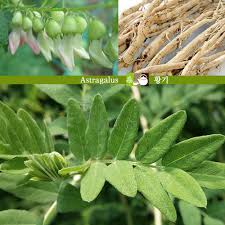Astragalus Benefits
1. Acts as an Anti-Inflammatory
Inflammation is at the root of most diseases. From arthritis to heart disease, it’s often the culprit of the damage. Many studies show that thanks to its saponins and polysaccharides, astragalus can reduce inflammatory response in connection to a number of illnesses and conditions, from helping to heal wounds and lesions to reducing inflammation in diabetic kidney disease. (6)
2. Boosts the Immune System
In terms of reputation, boosting the immune system is astragalus’ claim to fame. It’s been used in this capacity for thousands of years. A study out of Beijing displayed its ability to control t-helper cells 1 and 2, essentially regulating the body’s immune responses. (7)
3. Slows or Prevents the Growth of Tumors
Many recent screenings have shown the success of astragalus saponins, flavonoids and polysaccharides in decreasing or eliminating tumors. In instances of chemoresistance treating liver cancer, astragalus has shown potential in reversing multidrug resistance and as an addition to conventional chemotherapy, according to a study published in the Journal of Pharmacy and Pharmacology. (8)
4. Protects the Cardiovascular System
The flavonoids present in astragalus are antioxidants that help prevent plaque buildup in arteries and narrowing of vessel walls by protecting the inner wall of the vessel. In addition, a 2014 study published in the Chinese Journal of Integrative Medicine suggests injection of astragalus, combined with conventional treatment for viral myocarditis (inflammation of the middle layer of the heart wall), makes treatment more successful in heart conditions. (9)
Other studies have shown its ability to reduce blood pressure and level of triglycerides. (10) High levels of triglycerides put individuals at risk for many forms of heart disease, such as stroke, heart attack and hardening of artery walls.
During a heart attack, heart muscle damage occurs when there is a lack of blood supply and oxygen. At that time, calcium overload creates secondary damage. Astragalus may prevent additional heart muscle damage by regulating calcium homeostasis in the heart.
5. Regulates and Prevents Diabetes and Illnesses Related to Diabetes
Astragalus has been studied progressively as an antidiabetic. Studies show its ability to relieve insulin resistance and treat diabetes naturally. The herb’s collection of saponins, flavonoids and polysaccharides all are effective in treating and regulating type 1 and 2 diabetes. They’re able to increase insulin sensitivity, protect pancreatic beta cells (the cells in the pancreas that produce and release insulin) and also act as anti-inflammatories in areas related to diabetes symptoms. (11)
Kidney disease in diabetics is also a common problem, and astragalus has been used to treat kidney illness for many years. More recent studies in humans and animals have shown astragalus can slow the progress of kidney problems in diabetics and protect the renal system. (12, 13)



 Contact Us
Contact Us






 Hospitals
Hospitals
 Doctors
Doctors
 Diagnostic
Diagnostic
 Pharmacy
Pharmacy
 Health Tips
Health Tips
 Blog
Blog

















Comments